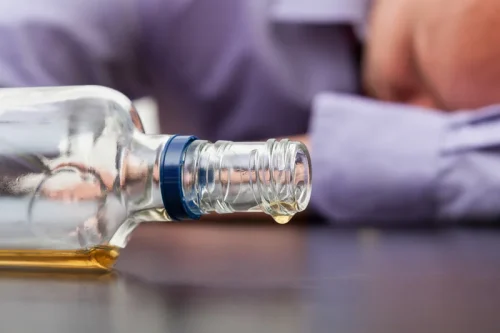
They work with individuals, families, couples, and groups in a variety of settings. Although there is no known gene for mental illness, research shows that there may be a genetic predisposition for many substance abuse counseling disorders. Your intake assessment will involve questions about family members who experience mental health conditions. A mental health assessment is usually more involved than a drug abuse assessment.
- However, some approaches are more helpful when you consider individual needs.
- Licensed addiction counselors are experts at understanding the underlying causes of addiction.
- This can make a licensed substance abuse counselor a safer choice than a therapist when you want treatment for a substance use disorder.
- Most states require a passing grade on the Examination for Professional Practice in Psychology (EPPP) for psychologists to earn licensure.
- To make the situation more complicated, the co-occurring disorders also affect each other.
- Having someone who truly listens, understands what you’re going through, and creates a safe space to be open and honest can significantly impact your recovery.
- Put simply, therapists are licensed to treat mental health conditions and substance abuse counselors (when licensed) are licensed to treat substance use disorders.
Persistent Depressive Disorder (PDD)

The most effective approach to treating depression is a program that integrates mental health and recovery services at the same facility, with a staff of professionals who are cross trained in both fields. The master’s program covers issues in human psychological development, different approaches to psychotherapy, identifying mental health issues, and how to deliver culturally competent therapy. After you graduate, you must work under the supervision of a licensed therapist for a set period before you can practice independently. Counselors, therapists, psychologists, and psychiatrists occupy unique niches in the mental health field, although the job titles are often used interchangeably. All these professions require graduate study and advanced supervised training.
Post-Traumatic Stress Disorder
Requirements to become a substance abuse counselor can vary, often depending upon the type of setting and employer. For most positions, a bachelor’s degree is required to be an addiction counselor. A Bachelor of Science in psychology is one type of degree held by addiction counselors, but for greater professional advancement, most counselors obtain a master’s degree.
Research Conducted at NIMH (Intramural Research Program)
Instead, you can just focus on the present-moment connection between certain thoughts, feelings, and behaviors and work on changing the thinking that leads to negative experiences. Substance abuse counseling requires a specific skillset to be successful. In some ways, it’s similar to therapy, but in some ways it’s radically different. Those differences can confuse therapists who don’t have training or experience in substance abuse counseling.
A BlueCross BlueShield Mississippi Network Provider
Career Outlook

Compare the Licensing Requirements for Mental Health Professionals

Types of care
- They can cloud judgment, distort perceptions, and alter reaction times, increasing the risk of accidents and injury.
- Some people recover within 6 months, while others have symptoms that last for 1 year or longer.
- To that end, we have built a network of industry professionals across higher education to review our content and ensure we are providing the most helpful information to our readers.
- The best way to help someone is to accept what you can and cannot do.
